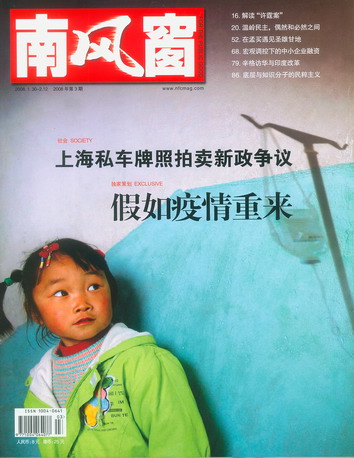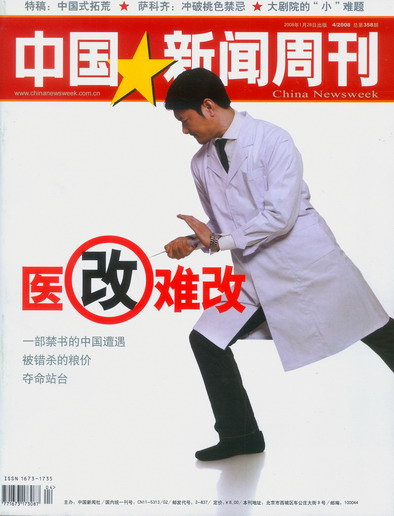Conscience, Cost, and Control(2)
 Open Broadcast with Public Participation
Open Broadcast with Public Participation
Window in the South (南风窗)
From Culture, page 90 to 92, Jan 30 – Feb 12 issue
"In the media world, when there's no access to the medium, there's no right to speech." The magazine's columnist Cai Ganquan takes a critical look at the consequences of Hong Kong-based Citizens' Radio – which is run by social activists – being charged with contempt of court for violating an order to cease broadcasting without license. The author provides comparative studies on public access channels (or open channels) in Canada and America.
The author argues that such initiatives provide an alternative to state-owned and profit-oriented commercial channels; in addition, it promotes social welfare as community-based issues are incorporated into programming and broadcasted by the concerned communities. The author laments that in the days prior to the internet age, open channels were the most democratic and freest space within the media structure in the world. He believes this medium should be protected since the internet space now faces increased pressure from state control and commercial interests.
Editor's note: The open channel, and later the internet, pioneered spaces where "everyone can be a journalist". Concern over information accuracy and "undesirable" material appearing in these channels remains a major concern for the government. Earlier this year, the Chinese government came up with new rulings to tighten control over online video hosting and sharing websites, and a new law concerning breaking news recently came into effect. The latter was controversial when first passed, but little has been said of it since in the Chinese media. Challenges for China's Medical Reform
Challenges for China's Medical Reform
China Newsweek (中国新闻周刊)
Cover story, page 26 to 34, issue no. 358, Jan 28, 2008
China's health care sector is anticipating another round of overhaul with a National People's Congress meeting just around the corner. The cover story examines challenges facing the health care system, including centralized procurement for medicine supplies, prevention of private-run medical centers, medical personnel profiteering through prescription commissions, price gauging in medicine, and medical insurance. Dong Chaohui, a scholar supportive of a market-oriented healthcare system, says the reforms carried out thus far were too simplistic, focusing on expansion in spending and giving ever more power to the Health Ministry.
Editor's note: A series of health care pilots launched all over the country in recent years have had mixed results, with government intervention in the market resulting in medicine shortages. Meanwhile, both domestic and international investors are eager for the industry to open up further so they can monetize on the increasing demand for health care products by an aging population.
| 1 | 2 |
The views posted here belong to the commentor, and are not representative of the Economic Observer |
Related Stories
Popular
Briefs
- OPhones to Take on iPhone
- The 3G-enabled Lenovo Mobile OPhone is likely to provide stiff competition to Apple's iPhone in the China market.

- Source:China Mobile
- 6.4-Magnitude Quake Rocks West China
- A 6.4-magnitude earthquake struck China's western Qinghai province earlier this morning.
- Source:China Earthquake Networks Center

- TAX
- Taxing Times
- China's tax bureau aims to collect an additional 100 billion in tax before the end of the ...




















